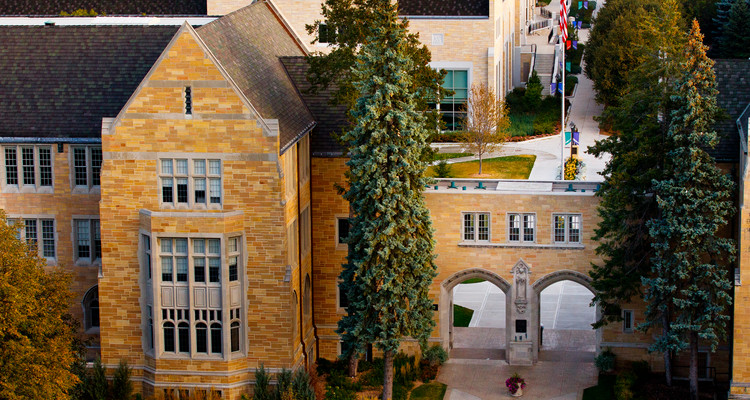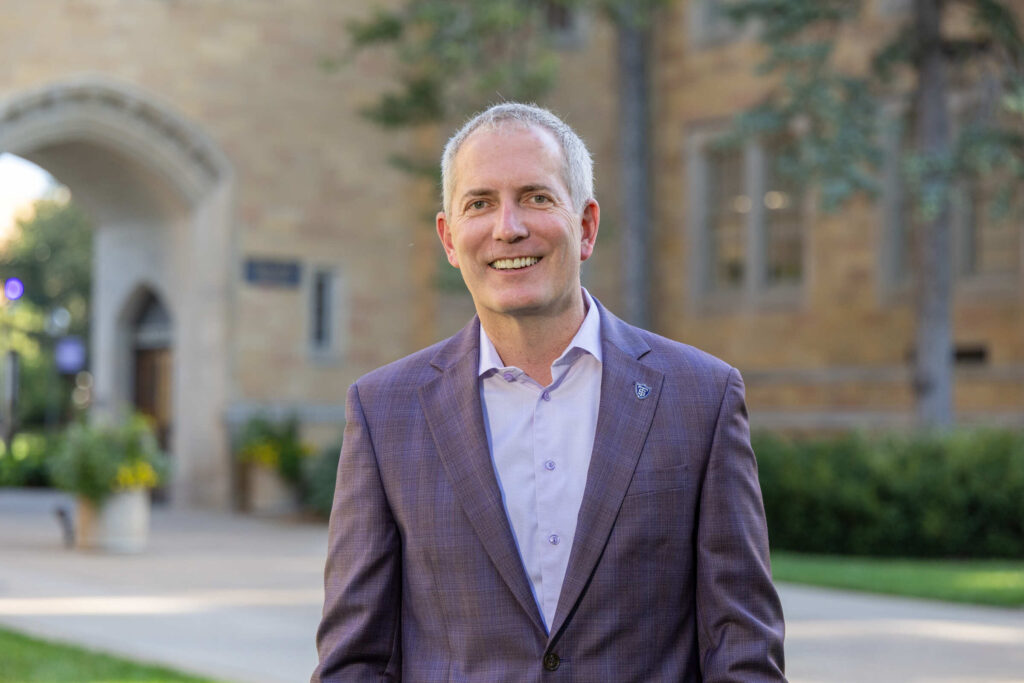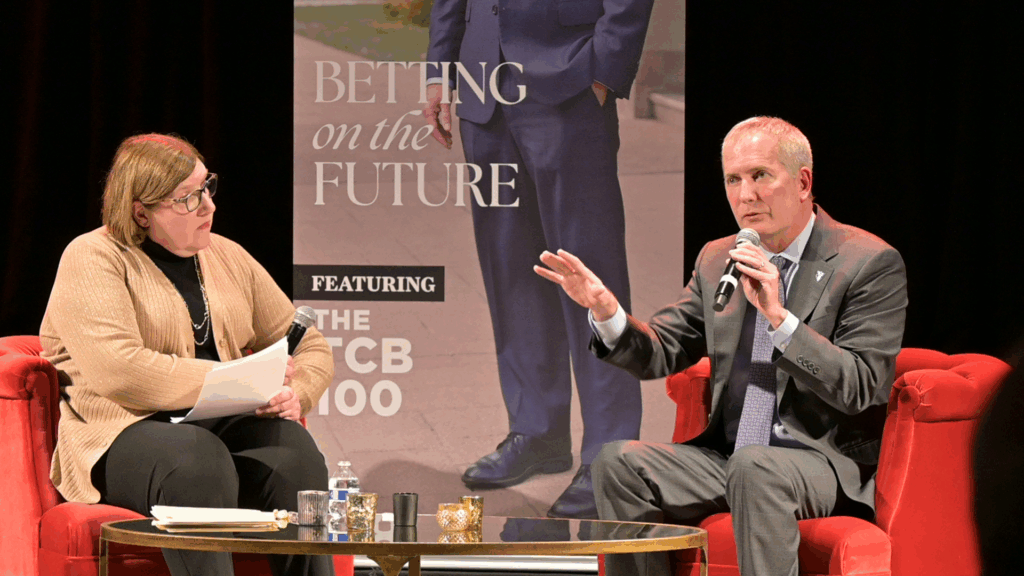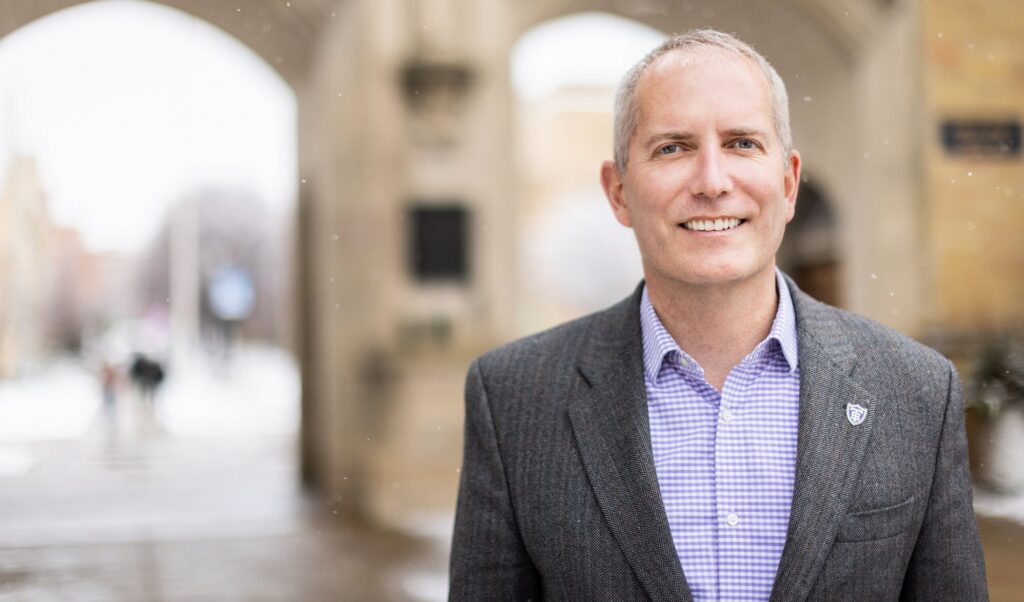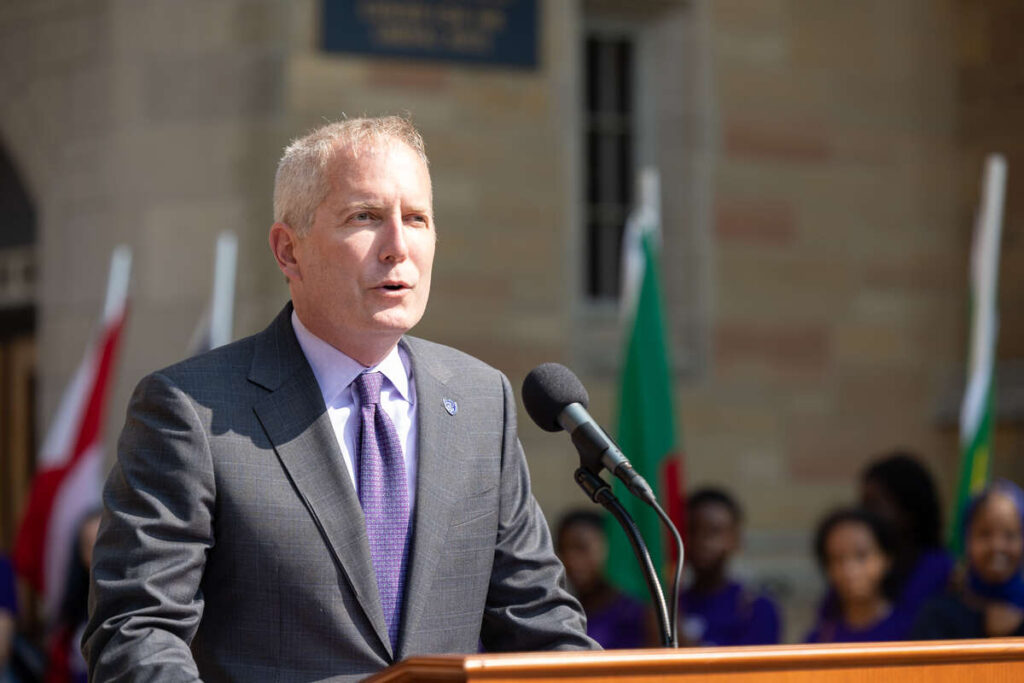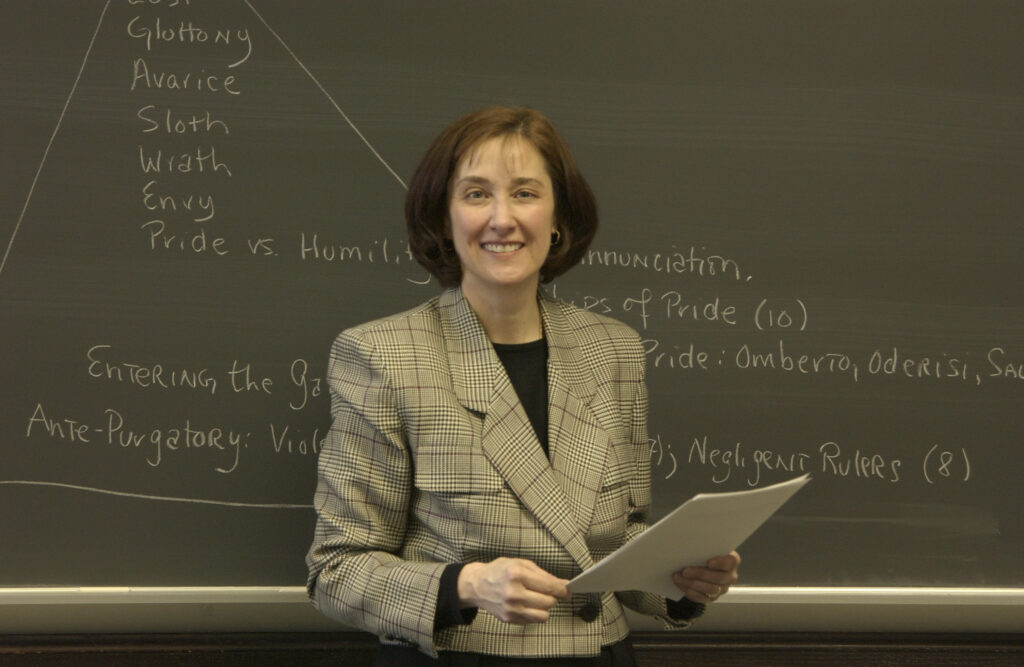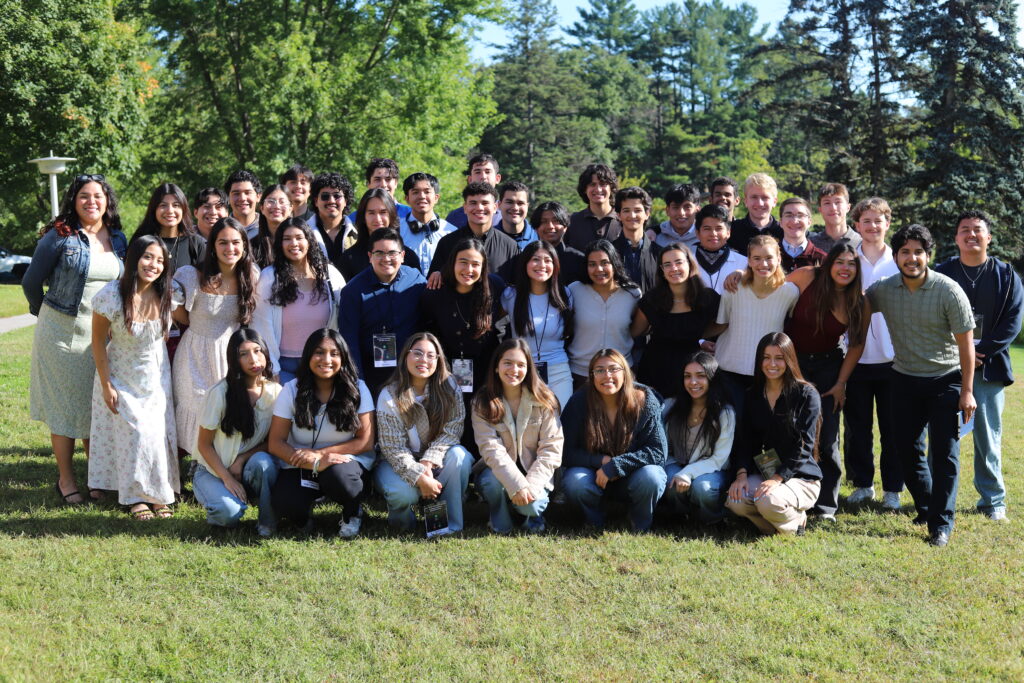The St. Thomas Board of Trustees has given conditional approval to open a two-year college, contingent on the faculty recommending a new associate of arts degree and the university securing financial support and approval from state and federal organizations.
The April 28 board action is the latest step during a yearlong review of whether to open a two-year college to increase access and affordability for students who otherwise might not consider a St. Thomas education and might not be academically ready for a four-year institution. Trustees will make a final decision this fall on whether to move ahead with the college as early as fall 2017.
A two-year Catholic college operated by a four-year Catholic university would be the second in the United States, following the opening of Arrupe College by Loyola University Chicago last fall. The college would be located at the downtown Minneapolis campus, and initial plans estimate a total enrollment of 300 first- and second-year students.
In granting conditional approval, the board said the project must clear several other hurdles:
- The faculty must recommend to President Julie Sullivan that the university should confer an associate of arts degree.
- Financial support in terms of scholarships and work partnerships must be secured. Some students are expected to work in businesses and organizations to pay a portion of their tuition.
- The Minnesota Office of Higher Education and the Higher Learning Commission, which accredits degree-granting institutions in 19 north-central states, must agree to authorize St. Thomas to confer an associate of arts degree.
The Board of Trustees urged the administration to continue to raise endowment funds for student scholarships. St. Thomas already has received a $3 million pledge for the project from a donor.
“I am encouraged that the Board of Trustees has given conditional approval for the two-year college,” Sullivan said. “Trustees agree the college would align beautifully with our mission as a Catholic university and our commitment to expand access, reduce student debt and contribute to eliminating the college education gap in Minnesota.”
Dr. Richard Plumb, executive vice president and provost, told St. Thomas faculty in a memo Monday that the creation of a two-year college “represents a significant step” for the St. Thomas community
Many details must be worked out for each step in the process, Plumb wrote in his memo. “We will continue to work on them in an open, transparent and collaborative manner.”
Strategic plan drives concept
The concept of a two-year college emanated from “St. Thomas 2020: Living Our Mission, Expanding Our Horizon,” the university’s strategic plan approved by the Board of Trustees in November 2014. The task force appointed to consider “Flexible Pathways,” one of eight priorities in the strategic plan, recommended that St. Thomas consider the two-year college. Initial objectives included:
- Providing an opportunity for motivated students who want to pursue a college education but have limited resources and are not yet fully academically prepared to enroll at St. Thomas.
- Providing strong instruction, academic counseling, personal interaction and a support system to prepare students to earn associate degrees and subsequently enter St. Thomas or other four-year institutions to complete bachelor’s degrees.
- Increasing the number of low-income, first-generation, minority and immigrant students attending college, and improve their retention and graduation rates.
Last October, Sullivan appointed Dr. Jill Manske, professor of biology, to a dedicated role of developing a detailed plan for a two-year college. Manske will continue to work with St. Thomas faculty to develop a curriculum.
Sullivan, Plumb, Manske and seven St. Thomas trustees visited Arrupe College last month to learn more about the Chicago school. It is named after Father Pedro Arrupe, a Jesuit who headed the religious order that runs Loyola and 27 other Catholic universities in the United States.
Arrupe calls itself “A New School” for “A New You” in its branding materials.
“You’re motivated and want to get your college degree,” Arrupe says. “But you’re a little concerned about the coursework – and very concerned about the costs. What can you do? Enroll at Arrupe. In 2015, Arrupe opened its doors to students with limited financial resources to help guide them to graduation with little or no debt. … We feature small class sizes, plenty of one-on-one contact with faculty members, and support staff who are focused on one thing: seeing you succeed.”
